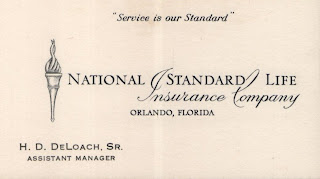I am a trumpet player. I have been since the seventh grade. For about the first three months of seventh grade it looked like I would be a tenor sax guy. That’s the instrument I started on.
The deal in those days was that you rented your instrument for the first three months, and then when it was fairly certain you were going to stick with it, they sent you home with a bill to purchase the horn outright or buy it on an installment plan. When in December of 1967 I arrived home with a bill for $363 my father helped me understand that I was not destined to be a saxophone player.
I delivered the news to the band director, Mr. Dampier, the next day. I’m certain he had heard similar news before, and he set about testing whether I had any promise on several less expensive instruments. It looked like the trumpet was an adequate fit, both aptitudinally and financially. It worked out great for me because trumpet is what I wanted to play from the beginning, and my dad could be convinced that $180 for a trumpet was tolerable. (Why I started on the sax is another story even more tedious than this one.)
I got my inspiration to be a trumpeter when I was in elementary school. On occasional weekends my parents would drive the three hours to Clearwater to visit my eldest sister, Nancy, and her family. Now and then as we were digesting Nancy’s delicious Sunday dinner my brother-in-law, Jim, would bring out his trumpet and play a few tunes for us. (If you were married to one of my five sisters you had a better-than-even chance of being a Jim. Three of them married Jims. Two of the Jims were later excised by divorce, but one of them got added back—another story, marked by sadness. The other two sisters sensibly married Davids in my honor.)
Jim was a talented musician; he had worked his way through college in the late 1950s playing in dance bands. I was enthralled by his playing and in awe of his talent. I didn’t occur to me then that I, too, could be a trumpet player.
In the early days of my trumpet playing I would be upstairs practicing in my room when my dad would yell up from the bottom of the stairs, “Hey, Hot Lips, it’s time for dinner!”
My parents were very patient with me while they waited and hoped I would one day develop a pleasing tone and play actual songs. The payoff did finally come. In my senior year I worked my way to first chair and was the soloist at a halftime performance of Bert Kaempfert’s arrangement of “Wonderland by Night.” It was my 15 minutes of fame. Also, in my senior year I was entered in the King of Clubs competition, (the boy’s version of the girl’s Queen of Clubs beauty contest) and took the Best Talent trophy for playing “If” and “The Sound of Music.” Those who are familiar with my appearance understand that’s the only award I was at any risk of winning that night.
I only play for my own enjoyment now, mostly because I’m the only one who could get any enjoyment out of the way I play these days. But during my Air Force career having some skill with the trumpet provided some benefits.
In technical school at Sheppard Air Force Base, Texas, where I trained to be a mainframe computer operator, I joined the base Drum and Bugle Corps. That got me a Straggler’s Pass which meant I didn’t have to march to class in formation in the frigid and windy predawn hours. In addition to our on-base performances we also marched in a parade in downtown Wichita Falls. That parade was memorable for a couple of reasons: first, it was so cold it was painful to put the mouthpiece to my lips, and second, after the parade we met some Dallas Cowboys cheerleaders who were also in the parade. Some of the guys in the band enthusiastically chatted and took photos with them. As a young husband and father, I kept a respectful distance.
Another benefit came later when I was in Officer Training School. By joining the officer trainee band I was exempt from doing the details other trainees were saddled with. The downside is that I couldn’t develop the valuable officerly skills of trimming grass and picking up trash around the base.
I’ve had a few public performances over the years in small groups and as a soloist, but nothing lately. I guess I’m out to pasture.
After all these years, making music is a gift that keeps on giving. If you’re a musician who hasn’t played in a while, give it another go. You may be surprised how much you enjoy it even if nobody else does.










